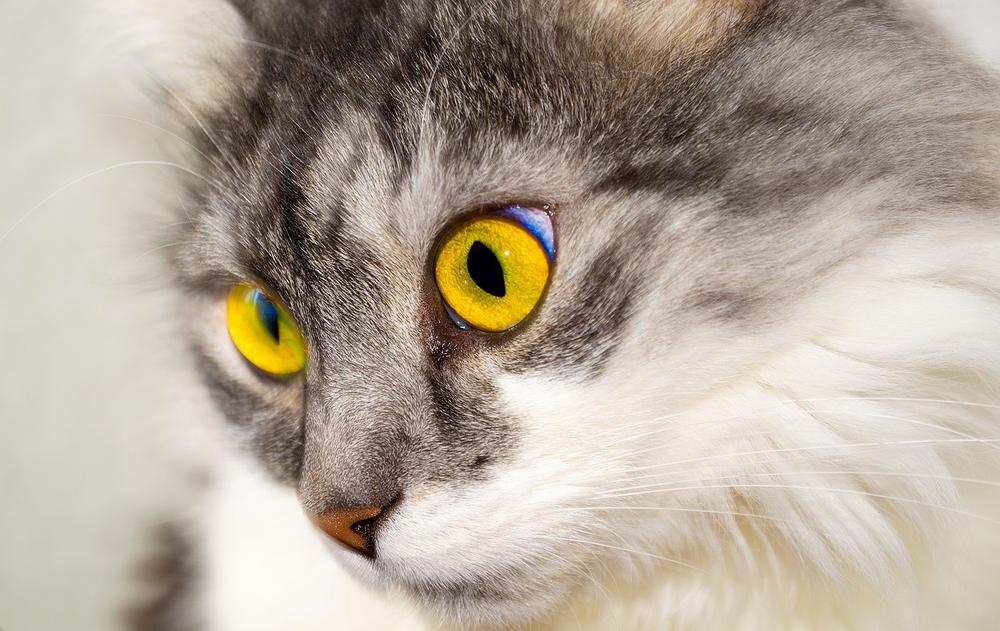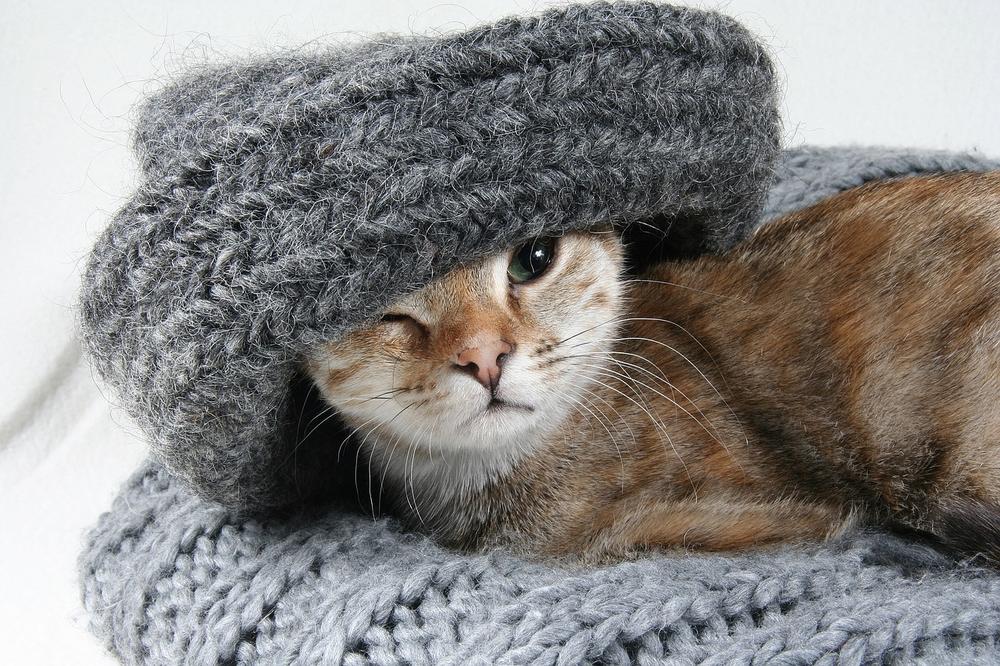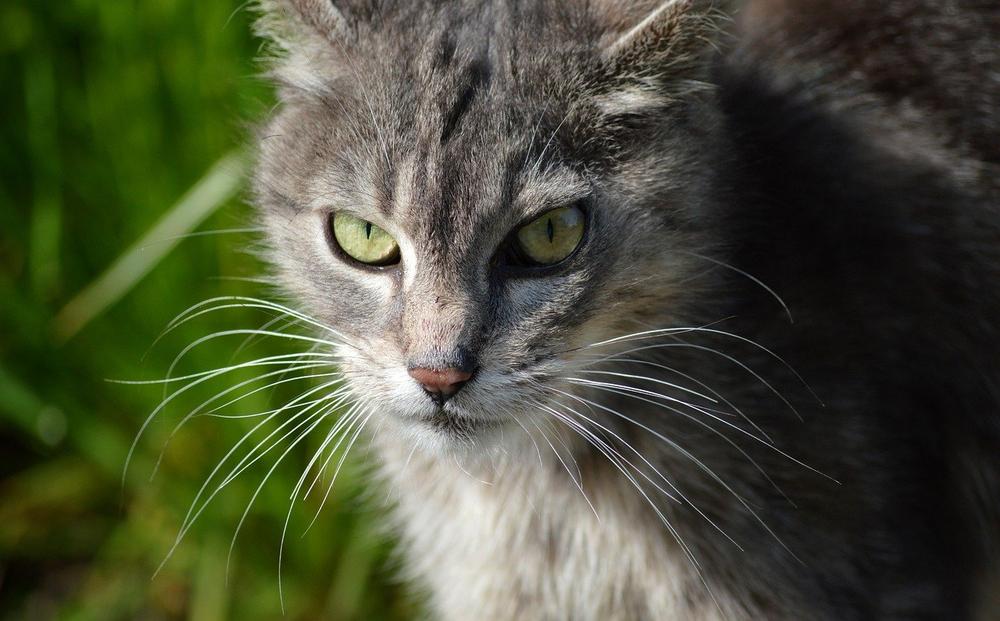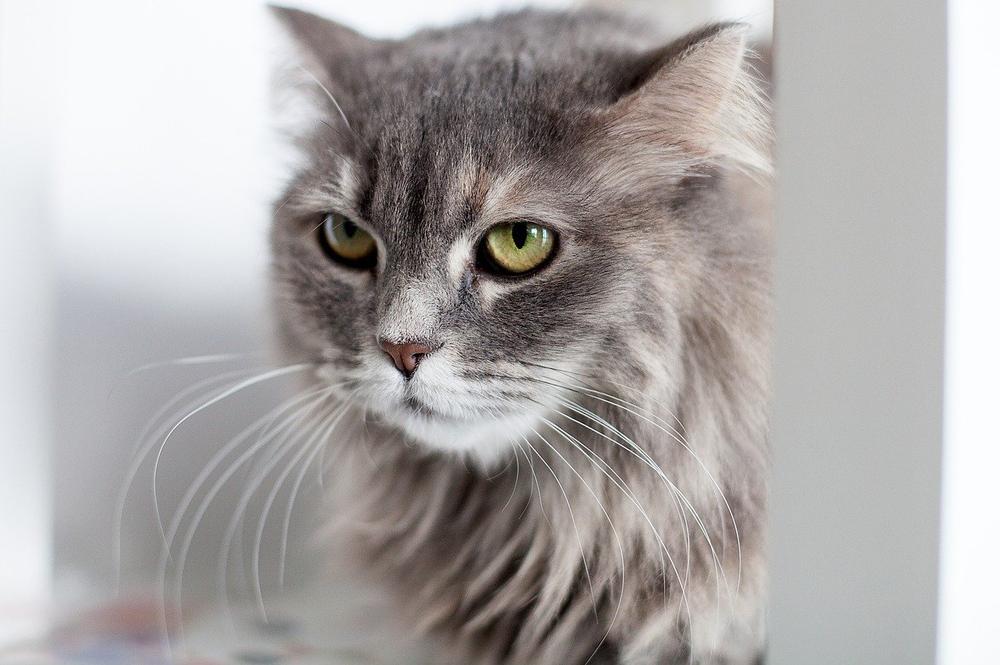Why Do Cats Meow Before They Use the Litter Box? (Revealed)

Just imagine:
You're peacefully sipping your morning coffee when suddenly, your cat lets out a piercing meow 😮.
Your confusion deepens as you watch them trot towards the litter box.
What could possibly be going on in their feline minds?
Let's dive into this mystery together.
Why Do Cats Meow Before Using the Litter Box?
Cats meow before using the litter box to communicate with their owners. It's their way of grabbing attention and asking for assistance. By meowing, they ensure that their owners are aware of their imminent actions and won't startle them while they're doing their business.
Cats, you are quite familiar with them.
Intriguing creatures.
Constantly meowing and meowing.
Well, let me give you the lowdown.
It's pretty common for cats to meow before using the litter box.
This is how they communicate with you, the all-knowing human.
You see, just like we have a deep love for pizza on a Friday night, cats have a talent for vocalization. They meow in order to grab your attention or ask for assistance.
Now, when it comes to peeing and pooping, cats can be quite secretive.

So, meowing before entering that litter box is their fancy way of giving you a heads up.
It's almost as if they're saying, "Hey you.
Prepare yourself for me to do my business."
But why do they meow? Well, it's because cats thrive on routine.
They enjoy announcing what they're about to do.
Moreover, meowing ensures that you won't accidentally startle them while they're in the middle of doing their business.
So the next time your furry companion starts meowing before heading towards the litter box, remember, it's their unique way of communicating their requirements and imminent actions.
Main points I'll expand upon further down this article:
- Cats meow before using the litter box to communicate with their owners.
- The tone of the meow can provide insight into their intentions.
- Observing their behavior and listening to their meows can help identify potential issues.
- Eating something inappropriate can cause discomfort and meowing before using the litter box.
- Bladder stones, constipation, and feline idiopathic cystitis can also cause meowing.
- Female cats may howl when in heat or to communicate the need for a clean litter box.
- Some cats may howl due to dislike of the smell of their own poop or the litter box.
- Cats may meow before using the litter box to seek attention or feel safe.
- FIC and bladder stones are common causes of meowing and discomfort.
- Monitoring the litter box and bowel movements is important for detecting health issues.
But what if your cat's meow before using the litter box is more than just communication?
Well, that's where things get interesting.
Let me tell you how to distinguish between a regular meow and a potential health concern...
Understanding Cat Communication: Meowing and Litter Box Behavior
To really get your cat, you need to understand how they communicate.
Meowing and litter box behavior can clue you in on their needs.
Here's a breakdown to help you decode their meows:
- Meows before using the litter box: Listen closely to the meow tone. A soft meow means everything is cool, but a stressed-out or intense meow could mean pain or discomfort.
- Watching litter box behavior: Take note of what your cat does while using the litter box. Straining or taking longer than usual might point to a health issue that needs attention.
- Checking out droppings: Keep an eye on their pee and poop. Any changes in color, texture, or smell could be a red flag for an underlying problem.
- Listening to meows: Pay attention if your cat starts meowing excessively or differently as they approach the litter box. This could be a sign of anxiety or not liking the litter box.
Gain insight into their needs and address possible concerns proactively by paying attention to their vocalizations and litter box behavior.
Remember, cats use meowing to talk to you, so listen up and respond accordingly. 😺
In conclusion, understanding your cat's communication is key to meeting their needs and addressing possible concerns.
But what if you're still puzzled by their behavior? If you're curious about possible reasons why your cat is sitting in the litter box, I invite you to explore my guide, Cat Sitting in Litter Box.
It's a resource that can shed light on this intriguing behavior and help you better understand your feline companion.
Common Reasons for Meowing Before Using the Litter Box
Cats meow before using the litter box for different reasons, and here are some practical things you should know:
- If a cat has had bad experiences before, it might meow while using the litter box because of anxiety or stress.
- Meowing can also be caused by discomfort from eating something wrong or having health issues like bladder stones, constipation, or feline idiopathic cystitis.
- Some cats meow when they're in heat or to let you know that they need a clean litter box.
- Cats may meow because they don't like the smell of their waste or the litter box itself.
- Meowing before using the litter box can be a way for cats to seek attention or feel safe.
- Cats use meowing as a way to announce their restroom activities too.
- If your cat meows while using the litter box near you, it may be asking for your protection.
Understanding these details will help you better address your cat's meowing and provide the support and care they need.
Every cat is unique, so observe their patterns and make adjustments accordingly.
But what can you do to create that calm and comfortable environment for your cat?

I'm glad you asked!
In the next section, we will explore some practical steps you can take to address potential stress factors and provide a soothing space for your furry friend.
Trust me, implementing these strategies will make all the difference in ensuring your cat's in essence well-being and happiness.
So, let's dive in together and discover how we can create the purrfect litter box environment for our beloved feline friends!
Addressing Anxiety and Stress Related to Litter Box Use
Here's how you can make your cat more comfortable while using the litter box:
- Give them a peaceful place to do their business.
- Find a quiet spot for the litter box.
- Consider what your cat needs specifically.
- Try to minimize anything that might stress them out and lead to FIC.
- Make sure to clean up their waste regularly.
- Don't forget to give the litter box a good clean every now and then.
- For cats with arthritis, choose a roomy litter box with low sides.
- Cats with mobility issues need easy access to the litter box.
- Keep an eye on your cat's behavior and talk to a vet if something seems off.
Your cat's comfort and prevention of urinary issues can be enhanced by adhering to these crucial measures.

Your kitty will be most appreciative!
Seeking Veterinary Advice for Excessive Meowing Before Using the Litter Box
Excessive meowing in the litter box could be a sign of underlying health issues
Cat lovers!
If your adorable feline pal starts making a lot of noise while doing their business in the litter box, it's time to pay attention.
This excessive meowing might actually be a warning sign that something important needs to be addressed.
Various medical conditions can cause excessive meowing
Sometimes, when your kitty is meowing like crazy in the litter box, it could mean they are dealing with some health problems.
Things like feline lower urinary tract disease (FLUTD), bladder stones, constipation, chronic kidney disease, diabetes, or urinary tract infections can all be potential culprits. These conditions can bring along pain and inflammation, which may explain why your furry friend cries out for help.
Don't worry, though—there are ways to manage these issues with medical interventions or behavioral therapy.
Immediate veterinary care is necessary in some cases
Now, here's where things become urgent:

If your cat, especially males, is showing signs of vocalization and straining without urinating, you need to act fast.
It could indicate a blockage situation that requires immediate veterinary attention.
Also, keep an eye on older cats as they might excessively meow due to other health problems like arthritis or cognitive dysfunction syndrome.
So, what should you do?
Just pay close attention to your kitty's litter box behavior and bowel movements. By keeping tabs on these things, you can catch any potential health problems such as urinary tract infections, cystitis, intestinal blockages, or pesky worms.
If you notice anything unusual, like changes in poop consistency, color, odor, or even the presence of worms, don't hesitate to contact a veterinarian as soon as possible.
Taking good care of your fluffy companion's health is essential for their in essence well-being, so seek professional advice whenever needed!
And that wraps up today's article.
If you wish to read more of my useful articles, I recommend you check out some of these: Cat Humping While Kneading, How to Stop a Cat in Heat From Meowing, Newborn Kitten Wont Stop Crying, and Why Do Cats Lick Concrete
Talk soon,
-Sarah Davis